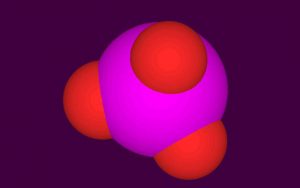- Joined
- May 16, 2019
- Messages
- 423
- Reaction score
- 335
I've heard that some people go as far as to supplement iodine in their tanks to help their xenia flourish. I haven't been able to verify this theory (and believe me I've tried), but that seems to imply that xenia is a bio-accumulator of iodine.
And if thats true then...
Well, it probably wouldn't be a huge issue for depleting your reef's iodine levels. The Xenia's uptake of iodine will slow to match the water concentration as it decreases. Xenia just accumulates it. It doesn't necessarily absorb it all completely. Your next water change will bring a fresh supply of iodine anyway.
So there's the red flag. After every water change the xenia has more iodine at its disposal to increase its internal concentration or grow new polyps (or both... x10). Iodine is going into your tank with the new salt mix but never leaving with the dirty water since lots has been trapped in the xenia.
So now what happens if the xenia dies...We've all heard the stories of xenia one day deciding to all melt. then randomly growing back out of nowhere as much as a year later. Where does that trapped iodine go?
Bonus: what chemical element can trigger invertebrates with exoskeletons to molt prematurely?
A year ago I decided to transplant a large rock of pulsing xenia into my nano tank from one of my larger tanks. The xenia defiantly died and I shrugged. that nano tank was a species tank for a peacock mantis shrimp. Suddenly the shrimp closed its burrow and began molting. It never came out again and I removed a half molted corpse from the tank a week later.
I dont know what caused my healthy mantis to suddenly die but I have my suspicions. Anyone more knowledgable than me thank can shed some light on my concerns would be a godsend.
And if thats true then...
Well, it probably wouldn't be a huge issue for depleting your reef's iodine levels. The Xenia's uptake of iodine will slow to match the water concentration as it decreases. Xenia just accumulates it. It doesn't necessarily absorb it all completely. Your next water change will bring a fresh supply of iodine anyway.
So there's the red flag. After every water change the xenia has more iodine at its disposal to increase its internal concentration or grow new polyps (or both... x10). Iodine is going into your tank with the new salt mix but never leaving with the dirty water since lots has been trapped in the xenia.
So now what happens if the xenia dies...We've all heard the stories of xenia one day deciding to all melt. then randomly growing back out of nowhere as much as a year later. Where does that trapped iodine go?
Bonus: what chemical element can trigger invertebrates with exoskeletons to molt prematurely?
A year ago I decided to transplant a large rock of pulsing xenia into my nano tank from one of my larger tanks. The xenia defiantly died and I shrugged. that nano tank was a species tank for a peacock mantis shrimp. Suddenly the shrimp closed its burrow and began molting. It never came out again and I removed a half molted corpse from the tank a week later.
I dont know what caused my healthy mantis to suddenly die but I have my suspicions. Anyone more knowledgable than me thank can shed some light on my concerns would be a godsend.


















